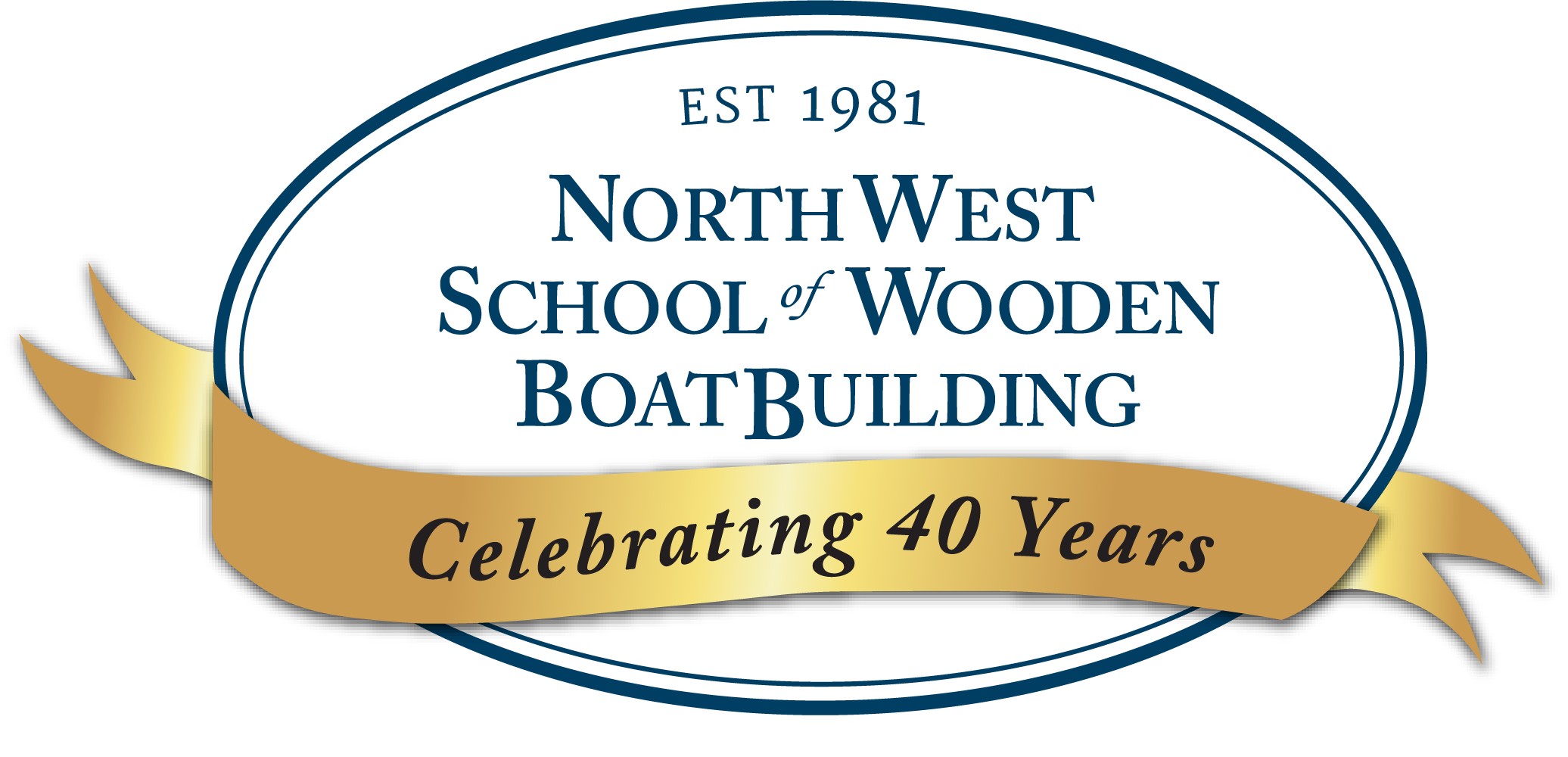I was once asked why spend time on “free” projects when there is so much work to be accomplished at a billable rate? The answer—at least for me—is relatively simple. Without the generous contribution of time and money from no small number of “strangers”, I would not be granted the privilege of residing in the American northwest, to say nothing of attending a boatbuilding school.
So I find myself in the company of fellow military veterans, working at the Port Hadlock Community Boat Project. For those of you who have not had the chance to wander the campus, the Community Boat Project occupies a space just above the large boat workshops. Providing a workspace for high school students, artisans seeking to share their skills, and a collection of the curious, this is a haven for people who enjoy wood, water and good company.
The trick, of course, is finding funding and ensuring basic labor and maintenance is accomplished on a schedule that meets program requirements. Occasionally, this means recruiting volunteers to haul trash or move lumber. On other days it means standing on a ladder or scaffolding while assembling a covered space to store or construct the next project.

Confronted with the forthcoming winter—also known as the “great northwet” in this part of the country, the Community Boat Project requested assistance from vets attending the Northwest School of Wooden Boatbuilding. A few of us have practice in general contracting—others are just learning to swing a hammer. Ultimately, it makes no difference. You will learn to construct and assemble on the fly.
Tear down the old lean-to. Build arches for a new storage area and then stretch canvas and plastic to keep out most of the elements. I use the term “most” very loosely. Oh, you can keep the rain off topsides and block a majority of the prevailing wind, but, there is no eliminating the humidity and cold. Mix the last two in this climate and there is space for everyone to experience the joy of arthritis. Just ask the twenty-somethings who are standing next to us condemned to be labeled “baby boomers.”
Enough whining.
To keep this project in perspective, consider the option of cutting 17 foot long rafters, hauling them up 20 feet into the air and then assembling in a  manner that hopefully will not blow away in the next wind storm. Add to this a covering that is 32 feet wide and about 50 feet long. Maybe I should have taken the optional course on sail making.
manner that hopefully will not blow away in the next wind storm. Add to this a covering that is 32 feet wide and about 50 feet long. Maybe I should have taken the optional course on sail making.
Fortunately, the whole plan came to fruition. Even with a few stumbles in measurement and sawing—Japanese saws prevailed—the structure went up in record time. It gives one a greater appreciation for what a barn-raising would have been like in the Midwest back at the turn of the century (think 1890) or what might happen on an Amish farm any given Spring or Summer to this very day.
With dogs underfoot, bagels in the belly, and hammers in hand, we partnered the boatbuilding school’s talent with local volunteers in a manner befitting the task at hand. The shelter is up and no one went home with hurt feelings. In other words, the contribution of time giving to a new generation of woodworkers was worth every minute.
All of which leaves me asking, what are you doing to return the assistance and opportunities provided over a course of a lifetime—be that 20 or 70 years.
The talents found at a boat school may be quite different from those found in a kitchen or sewing room, but all are equally valuable when it comes to enabling those who have not the same chance to pick up the skills we have come to master.
With that said, it’s time to pack my lunches for the next week of lessons, tools, and wizened insights from the Jedi masters.
Eric Anderson is a retired Air Force officer who can be found puttering in his shop when not scribbling on the keyboard. A new resident of Port Townsend, he is an avid sailor, struggling carpenter, and would-be writer.
____________________________________________________________________________
The Community Boat Project’s mission is to build a stronger Community by intergenerational Maritime Education.
To give youth a “sense of place” by connecting them to the Environment, the Economy, and the People of their region.
They are a partnership between the Puget Sound Voyaging Society, Northwest School of Wooden Boatbuilding, Port Townsend School District (#50), Chimacum School District (#49), and Jefferson County 4-H/WSU.
To learn more about the Community Boat Project, visit www.communityboats.wordpress.com/ or at facebook.com/CommunityBoatProject


